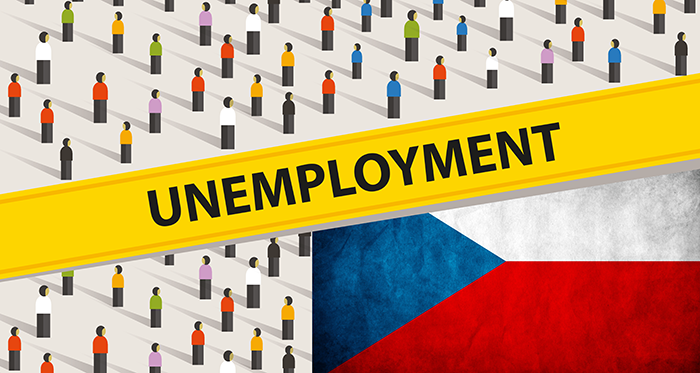Czech Republic’s unemployment rises to 4.3% in January amid labor market slowdown
Unemployment in the Czech Republic rose to 4.3% in January, up from 4.1% in December, with the total number of unemployed reaching 320,516—an increase of 14,038 from the previous month. The number of job vacancies also declined, with 83,323 positions available, down 163,250 compared to December 2024, according to data released today by the Czech Labour Office.
The labour market cooling is cited as the primary reason for the increase in unemployment, analysts say. The drop in job vacancies, however, is also partially influenced by a new measure introduced in early 2025, which removes listings older than six months from the register to ensure a more accurate job vacancy supply. This does not apply to roles requiring work permits, employment permits, or blue cards for foreign workers.
Regional Differences in Unemployment Rates
Unemployment rose in all regions except Prague, where the job market remained relatively stable. The highest unemployment rate was recorded in the Ústí nad Labem region (6.4%), followed by the Moravian-Silesian region (6%). Prague had the lowest unemployment rate at 2.8%.
Among individual districts, Most, Karviná, and Bruntál reported the highest unemployment rates, exceeding 8%. Conversely, the lowest rates—below 3%—were recorded in Prague-East, Prague-West, Rychnov nad Kněžnou, Pelhřimov, Benešov, Zlín, and Mladá Boleslav.
Labour Market Trends
On average, there are 3.8 job seekers per job vacancy across the country, with the highest competition for jobs in Karviná, Sokolov, Děčín, and Hodonín. Employers continue to seek candidates with primary or lower education for 72.3% of available positions, and 68.6% of vacancies remain open to foreign workers.
Over the past 12 months, the composition of job seekers has shifted. The proportion of short-term unemployed (less than three months) decreased by 3.6 percentage points to 33.2%, while the number of long-term unemployed (over a year) rose by 2.3 percentage points to 30.7%, totaling 98,386 people.
Additionally, the average length of unemployment registration slightly improved, decreasing by 15 days to 469 days compared to December 2024.
With economic conditions fluctuating and structural adjustments in the job market, analysts will closely watch labour trends and government measures aimed at stimulating employment in 2025.
Source: Úřad práce ČR and CTK









